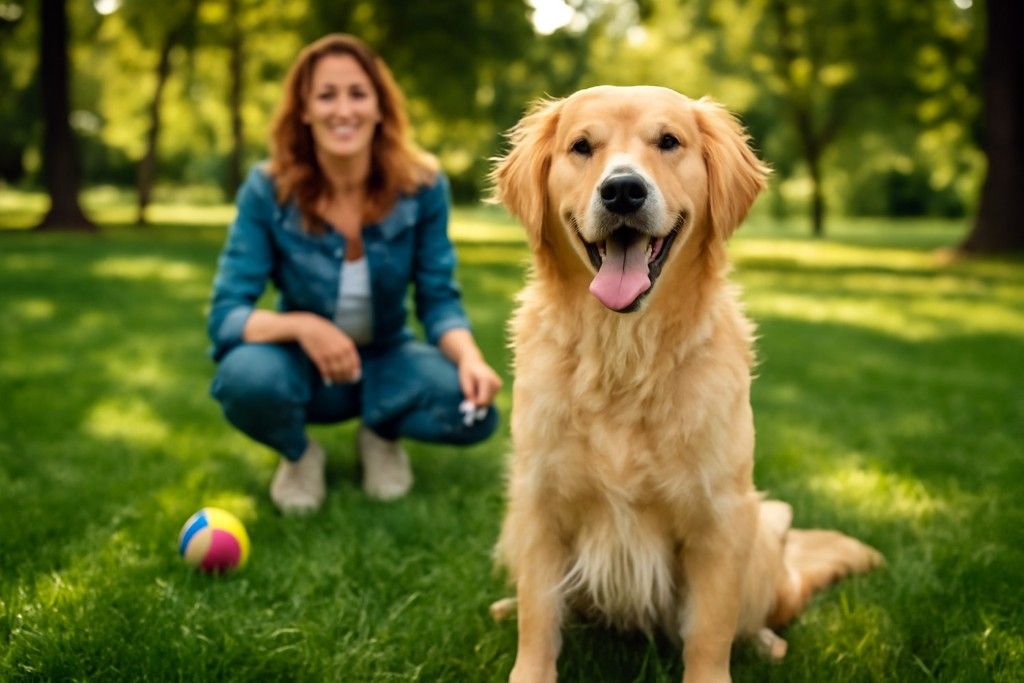A dog is more than just a pet; it’s a loyal companion, a source of comfort, and a true member of the family. To ensure your dog lives a happy, healthy life, it’s essential to focus on their physical, emotional, and mental well-being. From feeding routines to regular exercise and health check-ups, each aspect of their care plays a vital role in ensuring their longevity and happiness. This guide explores top secrets to help you foster a positive and fulfilling life for your dog, bringing joy to both you and your furry friend.
1. Nutritious Diet for Optimal Health

A balanced, nutritious diet is the foundation of your dog’s health. High-quality dog food that meets their specific breed, size, and age requirements is crucial. Opt for foods with natural ingredients and avoid excessive fillers like corn and soy. Regular feeding schedules also help in maintaining healthy digestion.
Some dog owners prefer homemade meals, but it’s important to ensure they provide the necessary nutrients. For dogs with specific health conditions, consulting a veterinarian for dietary recommendations is essential. Remember, fresh water should always be available, as hydration plays a key role in their overall well-being.
2. Regular Physical Exercise
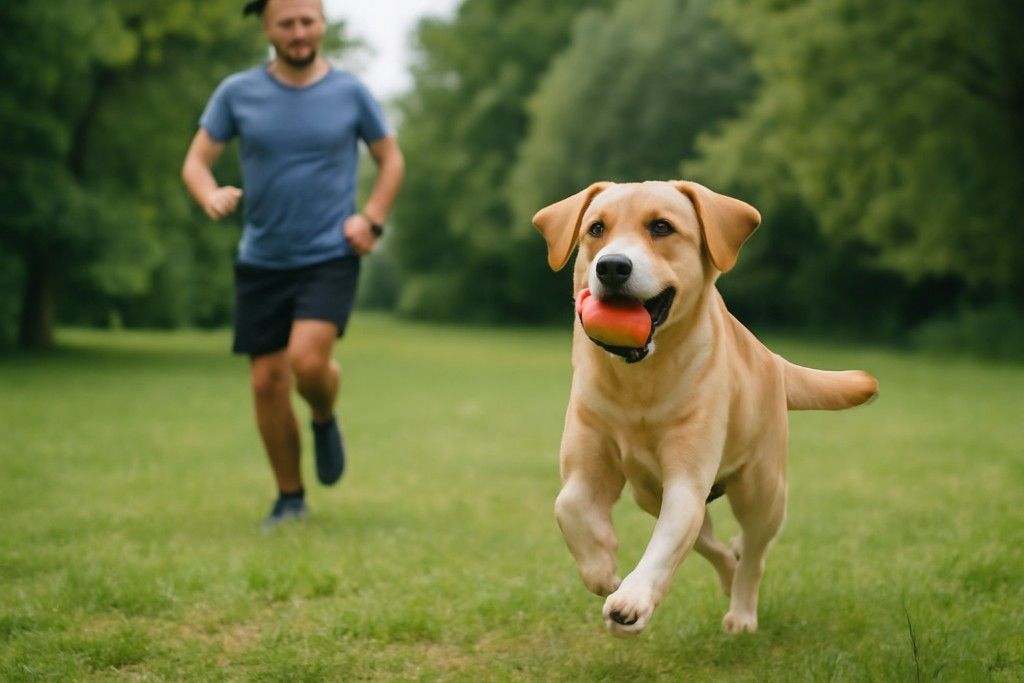
Physical activity is vital for keeping your dog fit and happy. Different breeds require varying amounts of exercise, but all dogs benefit from daily walks and playtime. Active dogs, such as Border Collies or Labrador Retrievers, may need more strenuous exercise, like running or hiking, while smaller breeds or older dogs may require less intense activity.
Regular exercise not only promotes physical health, preventing obesity and related issues, but it also stimulates your dog’s mind, reducing anxiety and destructive behaviors. Exercise helps build a strong bond between you and your dog while keeping them mentally sharp.
3. Regular Veterinary Checkups
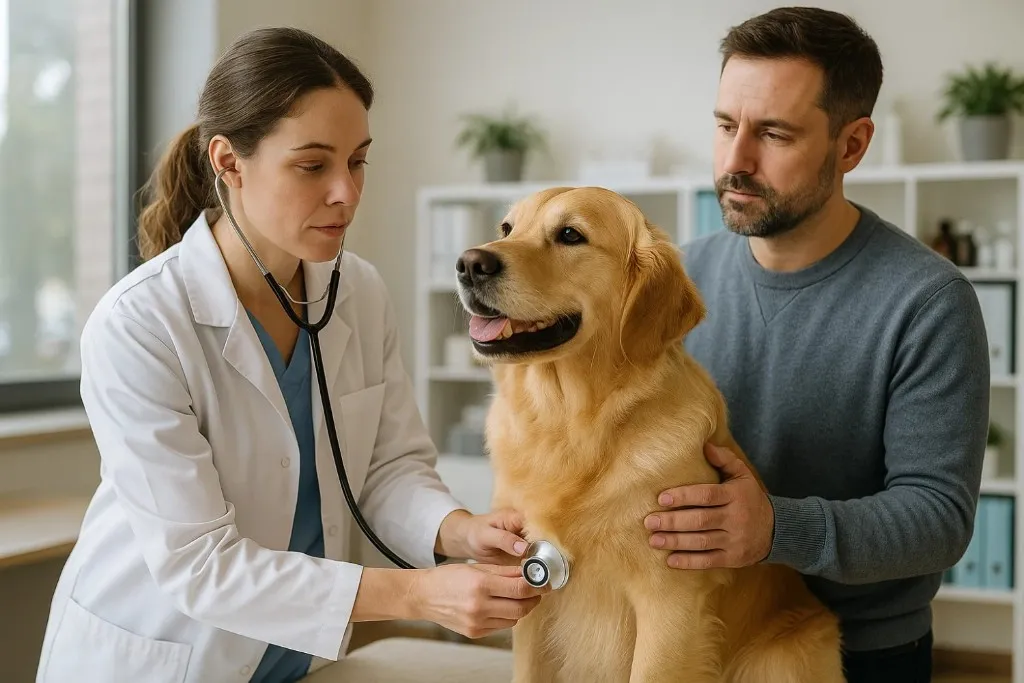
Routine vet visits are a must for maintaining your dog’s health. Annual checkups help detect potential health issues early, such as dental disease, parasites, or joint problems. Vaccinations, flea and tick preventatives, and heartworm tests should be administered as recommended by your vet.
Regular exams also provide an opportunity for you to discuss any behavioral or dietary concerns. Early detection of health issues leads to more effective treatments and can help prolong your dog’s life. Establishing a strong relationship with your vet ensures that you have a trusted partner in your dog’s health care journey.
4. Proper Grooming and Hygiene

Grooming is essential for keeping your dog comfortable and healthy. Regular brushing helps prevent matting and reduces shedding, while also distributing natural oils that promote healthy skin. Depending on the breed, some dogs may require more frequent grooming, such as haircuts for long-haired breeds or regular baths for dogs prone to oily coats.
Nail trimming, ear cleaning, and dental hygiene are also important aspects of grooming that help prevent infections. Regular grooming not only enhances your dog’s appearance but also provides an opportunity for you to check for skin issues, parasites, or unusual lumps.
5. Mental Stimulation and Enrichment

Just like physical exercise, mental stimulation is essential for a dog’s happiness and health. Interactive toys, puzzle feeders, and training exercises can keep your dog’s brain sharp. Engaging in obedience training sessions or teaching new tricks also provides mental enrichment while strengthening your bond.
Without adequate mental stimulation, dogs may become bored, leading to destructive behaviors like chewing or excessive barking. For breeds that are particularly intelligent, such as Border Collies or Poodles, providing complex tasks and challenges is crucial to keeping them entertained and satisfied.
6. Socialization for Confidence and Security

Socializing your dog from an early age is critical for their emotional well-being. Exposure to different people, animals, and environments helps your dog develop confidence and become well-adjusted. Proper socialization prevents fearful or aggressive behaviors that can arise when dogs are not accustomed to new experiences.
For puppies, it’s important to introduce them to various situations in a controlled and positive manner. Older dogs can also benefit from socialization, though it may require more patience. Regularly visiting dog parks or organizing playdates with other dogs is an excellent way to maintain your dog’s social skills.
7. Safe and Comfortable Living Space

A dog’s living environment plays a significant role in their overall well-being. Create a space that is safe, comfortable, and free from hazards. Ensure your dog has a cozy bed, a designated feeding area, and enough room to move around freely.
If your dog spends time outdoors, make sure the yard is secure and that there are no potential dangers, such as toxic plants or sharp objects. Dogs also thrive on routines, so having a consistent schedule for feeding, walks, and bedtime helps them feel secure and calm in their environment.
8. Adequate Sleep and Rest

Just like humans, dogs need quality sleep to stay healthy. Most dogs require between 12 and 14 hours of sleep per day, depending on their age, size, and activity level. Puppies and older dogs may need even more rest. Make sure your dog has a quiet, comfortable space to sleep, free from disturbances.
Consistent sleep patterns help maintain your dog’s energy levels and overall health. Rest is particularly important for dogs recovering from illness, surgery, or intense physical activity. Avoid disrupting their sleep, especially during the night, to ensure they get the necessary amount of rest.
9. Dental Care for Long-Term Health
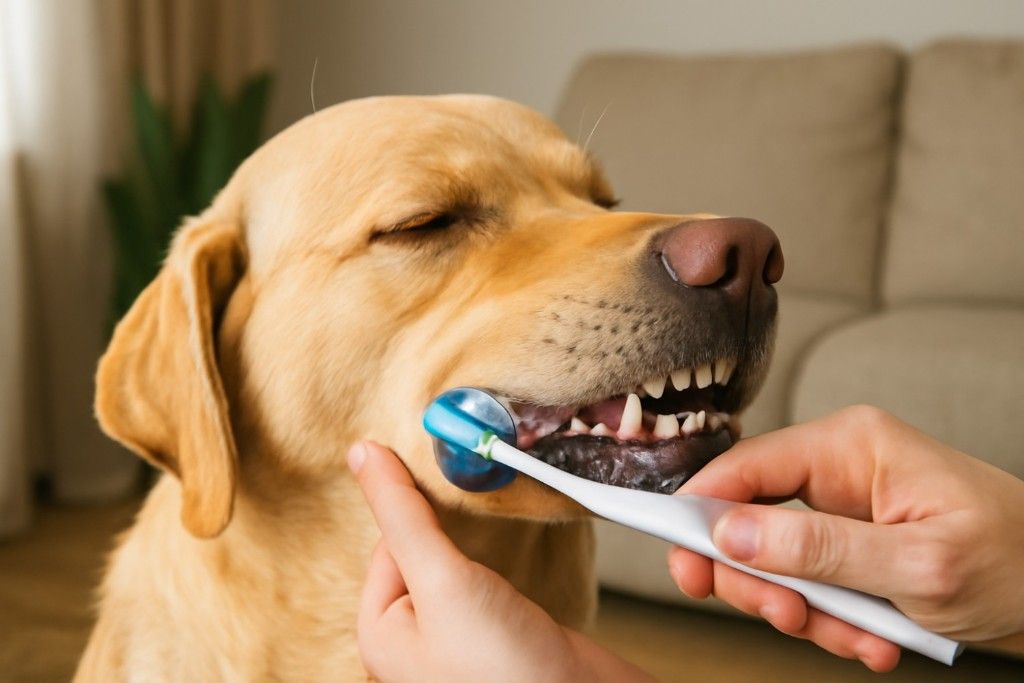
Dental health is often overlooked but plays a significant role in your dog’s overall health. Poor dental hygiene can lead to gum disease, tooth loss, and other serious health problems, including heart disease. Regularly brushing your dog’s teeth with dog-specific toothpaste and providing dental chews can help maintain oral health.
Additionally, regular vet checkups often include dental exams to detect any early signs of issues. For dogs who are not fond of brushing, professional cleanings may be necessary. Maintaining your dog’s dental health will contribute to a longer, happier life.
10. Understanding Breed-Specific Needs
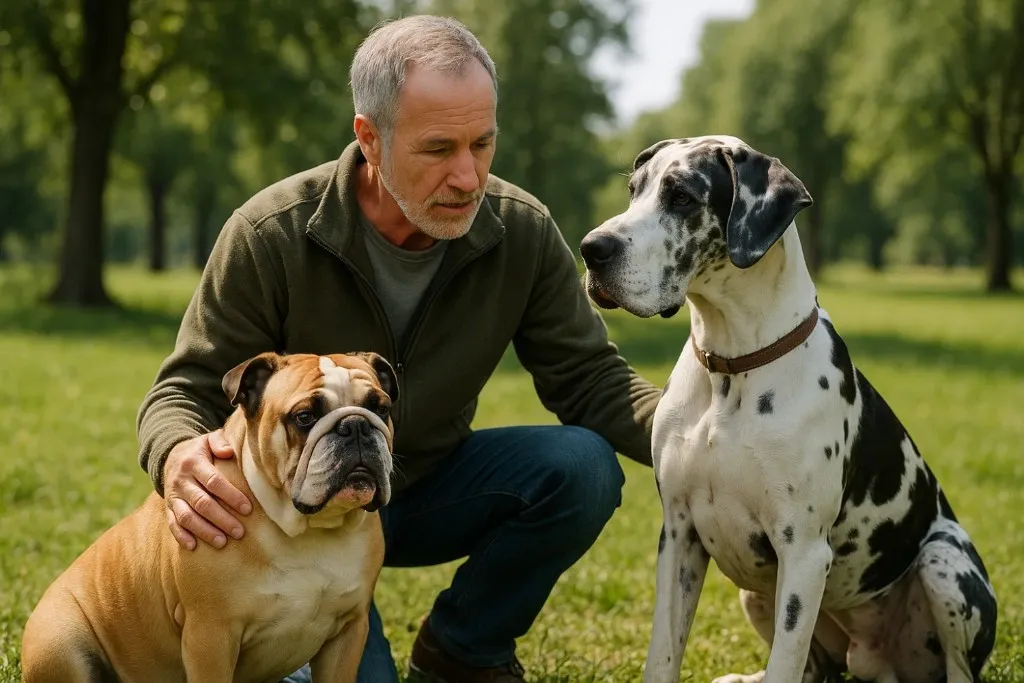
Each dog breed has its unique characteristics and health concerns. Understanding your dog’s breed is key to meeting their specific needs. Some breeds, like Bulldogs, are prone to respiratory issues, while large breeds, like Great Danes, may be more susceptible to joint problems. Researching breed-specific traits will help you provide better care.
Whether it’s adjusting exercise routines, diet, or grooming practices, knowing your dog’s breed can help prevent common health issues and improve their overall quality of life. Consider breed-specific health screenings or treatments as part of your dog’s regular care routine.
11. Preventative Parasite Control
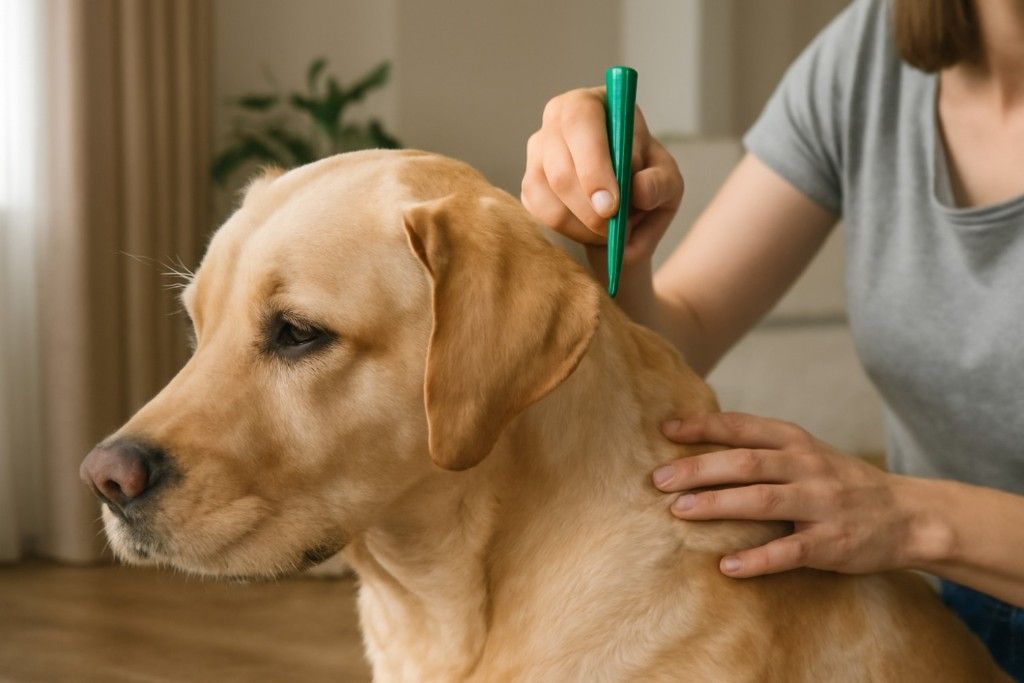
Parasites such as fleas, ticks, and worms pose a significant threat to your dog’s health. Regular parasite prevention is vital, especially in areas where these pests are prevalent. Fleas can cause itching, allergies, and even anemia, while ticks carry diseases like Lyme disease. Heartworms, transmitted by mosquitoes, can lead to severe health complications.
Using vet-approved preventive treatments, such as flea and tick medications or heartworm preventatives, can help protect your dog from these harmful parasites. Make sure to follow your vet’s recommendations for seasonal treatments to keep your dog safe year-round.
12. Emotional Well-being and Stress Management

A dog’s emotional health is just as important as their physical health. Dogs can experience stress, anxiety, and depression, often due to changes in their routine, environment, or separation from their owners. Signs of stress can include excessive barking, destructive behavior, or withdrawal. Providing a consistent routine, safe space, and plenty of attention can help alleviate stress.
In some cases, consulting a professional dog trainer or behaviorist may be necessary to address anxiety issues. Ensuring your dog’s emotional well-being enhances their happiness and strengthens the bond between you and your pet.
13. Healthy Weight Management
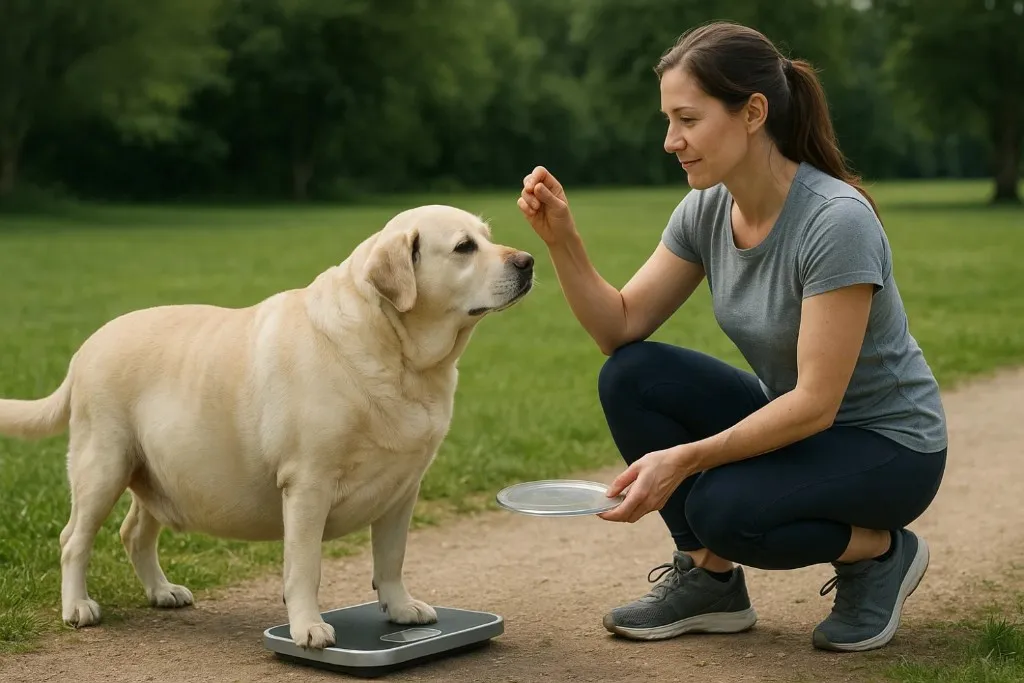
Maintaining a healthy weight is essential for your dog’s long-term health. Obesity can lead to various health problems, including joint issues, diabetes, and heart disease. Overfeeding, giving too many treats, or lack of exercise are common causes of weight gain. Monitor your dog’s weight regularly and adjust their diet and exercise routine accordingly.
If you’re unsure of your dog’s ideal weight, consult your vet for guidance. Many dog foods offer weight-management formulas that can help if your dog is struggling with obesity. Keeping your dog at a healthy weight ensures they remain active and vibrant throughout their life.
14. Regular Hydration

Proper hydration is key to keeping your dog healthy, especially if they are active or during hot weather. Water helps regulate your dog’s body temperature, aids digestion, and supports overall organ function. Always ensure your dog has access to fresh water, particularly after exercise or during meals.
Dehydration can lead to serious health problems, including kidney failure and urinary tract infections. Keep water bowls clean and place them in areas your dog frequents to encourage regular drinking. If your dog is hesitant to drink, try offering ice cubes or a water fountain designed for pets to make hydration more appealing.
15. Positive Reinforcement Training

Training your dog using positive reinforcement is one of the most effective ways to encourage good behavior. Reward-based training, such as using treats or praise when your dog performs desired behaviors, helps strengthen their connection with you and fosters a trusting relationship.
Positive reinforcement also promotes mental stimulation and provides a structured routine that benefits both you and your dog. Avoid harsh punishment-based methods, as these can lead to fear and anxiety. Consistent training, coupled with patience and praise, ensures your dog behaves in a way that is both enjoyable for you and beneficial for them.

